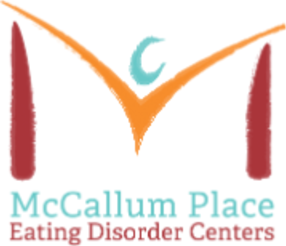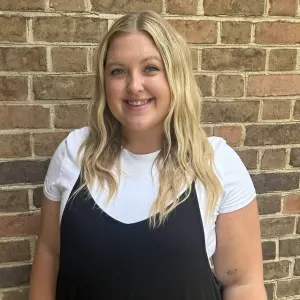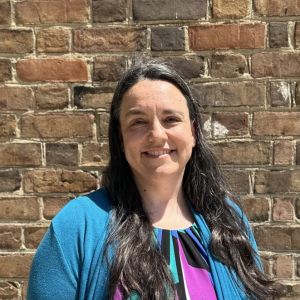








McCallum Place
Verified Center
This provider's information has been quality-checked by Recovery.com's Research Team for accuracy and completeness, including center verification through appropriate third-party organizations.
Treatment Focus
You can get treatment for eating disorders at this center, helping you navigate symptoms, build coping tools, and restore your physical health under expert care.
Primary Level of Care
Offering intensive care with 24/7 monitoring, residential treatment is typically 30 days and can cover multiple levels of care. Length can range from 14 to 90 days typically.
Treatment Focus
You can get treatment for eating disorders at this center, helping you navigate symptoms, build coping tools, and restore your physical health under expert care.
Primary Level of Care
Offering intensive care with 24/7 monitoring, residential treatment is typically 30 days and can cover multiple levels of care. Length can range from 14 to 90 days typically.
Provider's Policy
Please call our admissions team for more information on insurance coverage. A knowledgeable member of our team can answer any financial questions you might have, and they can also reach out directly to your insurance carrier to verify and maximize your benefits. This service is free and puts you under no obligation to choose our programming.
McCallum Place
McCallum Place
About McCallum Place
Using intensive medical and psychological treatment, McCallum Place treats eating disorders in children, adolescents, and adults. McCallum Place provides 24/7 monitoring, nutritional education, guidance from dietitians and academic care through on-site teachers and tutors.
Collaborative, Compassionate Care
McCallum Place’s treatment professionals include psychiatrists, psychologists, child and family therapists, physicians, nurses, dietitians, and sports medicine professionals. In their residential program, clients receive at least one 1:1 session with their psychologist, 3 weekly individual sessions with their eating disorder therapist, and one weekly session with a dietitian. Each client’s care team meets once a week to collaborate on goals and progress. McCallum Place provides support during and after all meals and snacks. They can provide intensive medical services as needed, like nasogastric tube feeding.
Treating Eating Disorders And Co-Occurring Conditions
McCallum Place can treat anorexia nervosa, bulimia nervosa, binge-eating disorder, body dysmorphia, laxative abuse, and avoidant/restrictive food intake disorder (ARFID). Along with primary eating disorders, they treat co-occurring mental health conditions like anxiety, depression, post-traumatic stress disorder (PTSD), trauma, self-harm, obsessive compulsive disorder (OCD), and personality disorders.
Multiple Care Levels And Treatment Tracks
McCallum Place provides multiple levels of care, including residential treatment, partial hospitalization, an intensive outpatient program, and transitional housing. McCallum Place also provides a specialized recovery program for athletes, Victory Program. Here, athletes receive treatment for eating disorders and athletic support, with sports psychologists, coaches, and sports dieticians helping them recover.
Highlights from the Center
Highlights
These highlights are provided by and paid for by the center.
Customized Treatment Plans
Holistic Approach
Eating Disorders Program
Center Overview
Treatment Focus
You can get treatment for eating disorders at this center, helping you navigate symptoms, build coping tools, and restore your physical health under expert care.
Joint Commission Accredited
The Joint Commission accreditation is a voluntary, objective process that evaluates and accredits healthcare organizations (like treatment centers) based on performance standards designed to improve quality and safety for patients. To be accredited means the treatment center has been found to meet the Commission's standards for quality and safety in patient care.

McCallum Place
Insurance Accepted
Cash Pay Rates
Estimated Cash Pay Rate
Center pricing can vary based on program and length of stay. Contact the center for more information. Recovery.com strives for price transparency so you can make an informed decision.




Recovery.com Verified Listing
Recovery.com verified that the name, location, contact information and license to operate for this treatment provider are valid and up-to-date.

Licensed by Missourioccupancy
Recovery.com is an independent, third-party mental health resource. Verification does not imply endorsement and does not guarantee the quality of treatment services.
Meet Your Care Team

Michelle Petrosky
Chief Executive Officer
MHA, BSN, FACHE, NE-BC

Corey Hastings
Chief Financial Officer

Lauren Flynn
Psychiatrist
M.D.

Caroline Rudnick
Family Medicine Physician and Medical Director
M.D., PhD, CEDS

Jaimee Hamm
Clinical Manager
MS, LPC

Bree Schneider
Clinical Manager
MEd, PLPC

Elizabeth Bloomfield-Deal
Therapist
MA, LPC

Warren Ferguson
Therapist
M.ED, LPC

Angela Chen
Therapist
ATR-P, PLPC

Leah Strickman
Therapist
LSMW

Jilly dos Santos
Therapist
LMSW, CMI-Spanish

Skylar Bright
Therapist
PLPC

Connie Flachs
Therapist
LMSW

Denise Stoesz
Therapist
MA, LPC

Emily Slat
Child and Adolescent Psychiatrist
MD, PhD

Alexis Hughes
Director of Nutrition Services
RD, LD

Morgan Beaman
Registered Dietitian
MFN, RD, LD

Taylor Larson
Sports Dietitian
RD, CSSD, LD

Danielle Williams
Registered Dietitian
RD, LD

Anthony Taveggia
Director of Utilization Review
M.A., MAADCII

Elizabeth McDonald
Movement and Fitness Specialist
CPT

Ashley Klotz
Therapist
MA, PLPC

Karen Mac Wallach
Teacher
M.Ed.

Nancy Anderson
Manager of Educational Services
BS

Laurie Schreyer
Director Human Resources

Finn
Canine Therapist

Mavis
Canine Therapist
Your Care Options
Specializations
Eating Disorders
An eating disorder is a long-term pattern of unhealthy behavior relating to food. Most people with eating disorders have a distorted self-image.
Who We Treat
Adolescents
Teens receive the treatment they need for mental health disorders and addiction, with the added support of educational and vocational services.
Young Adults
Emerging adults ages 18-25 receive treatment catered to the unique challenges of early adulthood, like college, risky behaviors, and vocational struggles.
LGBTQ+
Addiction and mental illnesses in the LGBTQ+ community must be treated with an affirming, safe, and relevant approach, which many centers provide.
Midlife Adults
For adults ages 40+, treatment shifts to focus on the unique challenges, blocks, and risk factors of their age group, and unites peers in a similar community.
Treatment Services
Day Treatment
In a PHP, patients live at home but follow an intensive schedule of treatment. Most programs require you to be on-site for about 40 hours per week.
Intensive Outpatient Program
In an IOP, patients live at home or a sober living, but attend treatment typically 9-15 hours a week. Most programs include talk therapy, support groups, and other methods.
Outpatient
During outpatient rehab, patients attend a structured treatment program while continuing to live at home.
Residential
In a residential rehab program, patients live onsite, with access to daily treatment and 24-hour care. An average stay is 30-90 days.
Approaches
Evidence-Based
A combination of scientifically rooted therapies and treatments make up evidence-based care, defined by their measured and proven results.
Family Involvement
Providers involve family in the treatment of their loved one through family therapy, visits, or both–because addiction is a family disease.
Individual Treatment
Individual care meets the needs of each patient, using personalized treatment to provide them the most relevant care and greatest chance of success.
Gender-Specific
Separate treatment for men or women can create strong peer connections and remove barriers related to trauma, shame, and gender-specific nuances.
Therapies
Trauma-Specific Therapy
This form of talk therapy addresses any childhood trauma at the root of a patient's current diagnosis.
Animal Therapy
Animals can inspire trust and self-worth. In this experiential therapy, guided interactions are used to improve social skills and emotion regulation.
Eye Movement Therapy (EMDR)
Lateral, guided eye movements help reduce the emotional reactions of retelling and reprocessing trauma, allowing intense feelings to dissipate.
Family Therapy
Family therapy addresses group dynamics within a family system, with a focus on improving communication and interrupting unhealthy relationship patterns.
Music Therapy
Singing, performing, and even listening to music can be therapeutic. Music therapy sessions are facilitated by certified counselors.
Nutrition Counseling
Nutritious food helps patients heal from within, setting them up for mental and bodily wellness as they learn about healthy eating.
Conditions We Treat
Eating Disorders
An eating disorder is a long-term pattern of unhealthy behavior relating to food. Most people with eating disorders have a distorted self-image.
Substances We Treat
Co-Occurring Disorders
A person with multiple mental health diagnoses, such as addiction and depression, has co-occurring disorders also called dual diagnosis.
Languages
Care Designed for Your Needs
Personal Amenities
Amenities
Special Considerations
Activities
Yoga
Yoga is both a physical and spiritual practice. It includes a flow of movement, breathing techniques, and meditation.
Off-Site Activities

Learn More About the Center
Understanding Eating Disorders: Breaking Down Myths and Facts
Explore common myths surrounding eating disorders and learn how advocacy and treatment can help individuals on their journey to recovery.
Alumni Testimonials & Reviews of McCallum Place
Hear from alumni and their family and friends who experienced what treatment is like at McCallum Place.
The Admissions Process
Learn more about the admissions process at McCallum Place, including what to bring and their average length of stay.
Measurement-Based Care
McCallum Place shows how they measure their results, and what their findings show about their treatment.





